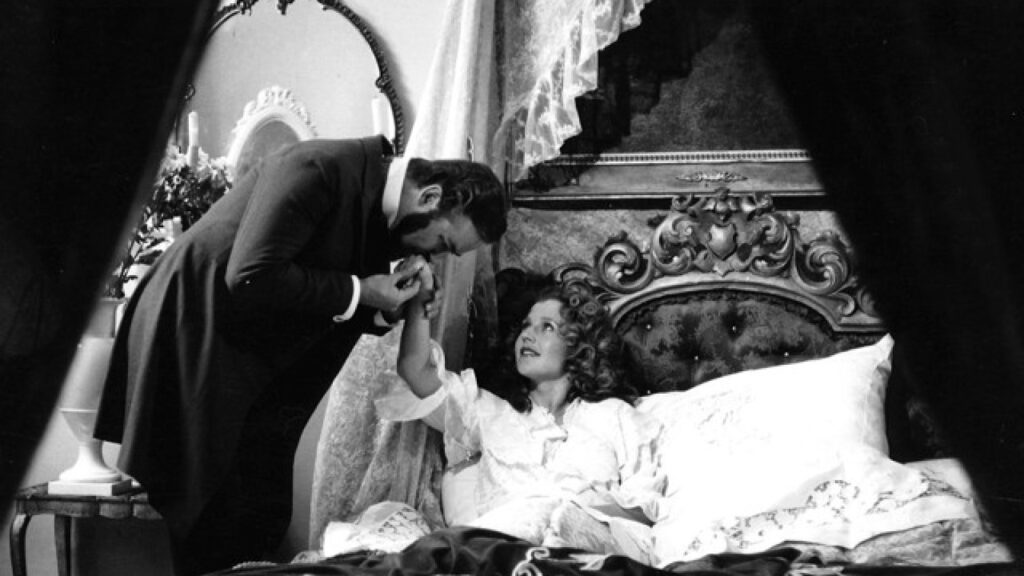
The influence of Protestantism and the Aufklärung cannot, as so often is the case, be neglected in the analysis of German, Hungarian, Austrian, Dutch, Latvian, Polish, Lithuanian, and Swedish cinemas. These philosophical concepts took root under the Prussian and German Empires of the 19th century, derived from Protestant theologians, that would have ramifications running through to the 21st century. The “ideas” at work here are those of Christian Wolff and his predecessor Gottfried Wilhelm Leibnitz.
In these Germanic nations Pietism and the Aufklärung (or Enlightenment) captured the zeitgeist simultaneously and would continue in their development on a parallel course. However, by the 19th century, philosopher Christian Wolff’s notions of “pure logic”, born out of this congruent development, had become widely debated. Wolff, building upon the earlier work of Leibnitz, proposed that the world at large operated as a machine, and that human beings, endowed with a soul, seek to understand themselves, their surroundings, and ultimately gain control of the machine through that understanding. That is to say that the more completely one understands a thing, the more complete one’s pleasure becomes, and vice versa. This emphasis on “pleasure” stems from the influence of Pietism, which has had a symbiotic relationship with the Enlightenment.
By the early 1800s Wolff’s emphasis on knowledge, and the cold analytical means by which he believed that knowledge could be achieved, had become part of the bureaucratic machinery propelling not only the Prussian and German Empires, but also the Austrian-Hungarian Empires. In the latter works of Theodor Fontane, particularly Effi Briest (published in 1894) and the characterization of Innstetten, one can find these principles of Wolff’s logic as elements of characters existing in autocratic positions in which such elements of character are derided for the benefit of comic relief and social satirizing.
It is from this point that I wish to leap into the cinematic with a discussion of the character of Innstetten (Wolfgang Schenk) in Rainer Werner Fassbinder’s 1974 cinematic adaptation of Fontane’s novel. The character represents the infamous “cold German logic” and “German efficiency”; character tropes popular with audiences internationally and born out of Wolff. Fassbinder’s treatment of Innstetten, though somewhat campy, also functions upon similar classist assumptions and takes into account the same truths regarding the German political machine. However, Fassbinder’s Effi Briest (1974) has stylistic concerns with emotional realism worlds apart from Fontane’s emphasis on the psychological in his novel. Despite this aesthetical difference, elements of the broader depiction of Wolff’s impact still manage to surface in Schenk’s Innstetten.
Hanna Schygulla’s Effi, within the context of Wolff’s “pure logic”, represents a character unable to understand and, in turn, conquer herself. For Fontane and Fassbinder, Effi’s strength is her ignorance in this context. Effi is all things Romantic; she is poetry, she is music, she is the total opposite of Innstetten, her husband. So as Effi enters into a conflict with Innstetten the narrative itself transforms into an explicit allegory for societal oppression. Knowledge and the power or control that comes with it corrupts the spiritual, thwarts the quest for pleasure.
Also in 1974, Fassbinder made his film Martha, a harrowing, Douglas Sirk inspired look at many of the same themes which are at the heart of Effi Briest. Wolff’s legacy is felt in Martha within a contemporary setting, pinpointing the continued struggle that his writings sought to articulate. The relationship between the oppressor and the oppressed forms the thesis to Fassbinder’s entire body of work. In Effi Briest, Fassbinder embraces Fontane to construct a formally sophisticated film that addresses Wolff’s quagmire of “pure logic”.
